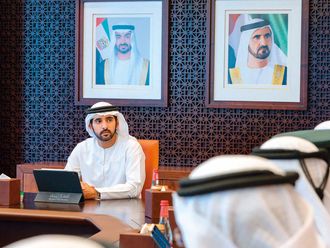Abu Dhabi: Experts in energy and environment sectors have called for removing government subsidies for water and energy for environmental and financial reasons which may pave the way for higher utility prices in the UAE.
Everyone knows that the cost of fossil fuels is much lower than its real cost, Adnan Z. Ameen, director-general of International Renewable Energy Agency (Irena), said. The external costs of fossil fuels such as carbon costs, health and environmental costs (for example seven million global deaths annually due to air pollution) are not included in its price, he said at the ‘Powering Progress Together’ conference, jointly hosted by Shell and Masdar in the capital on Thursday.
The conference, held for the first time in the Middle East, examined the key challenges around securing access to energy, water and food, a critical issue for governments, industries and societies worldwide.
Mohammad Yousuf Al Midfa, executive director of Integrated Environmental Policy and Planning Sector at Environment Agency - Abu Dhabi, said the UAE, especially Abu Dhabi, has to eventually move away from subsidised regime, because residents do not consume water and electricity wisely with low-tariffs. Abu Dhabi has the highest per capita consumption in the world (around 550 litres) whereas in Dubai, the consumption was reduced when subsidies were reduced, he said.
Mohammad Al Ramahi, associate director, Clean Energy, Masdar, also also favoured removal of subsidies on fossil fuels.
Fatma Al Fowra Al Shamsi, assistant undersecretary for Electricity at UAE Ministry of Energy, said it is not practical to change the tariff at once. It needs a strategy to phase in changes.
In Dubai, fuel surcharges have been introduced with tariffs, she said.
While agreeing with calls for more measures for energy efficiency and subsidy removal, the Irena chief said, they are not enough to meet demand for sustainable energy in the future. widespread adoption of renewable energy, whose price has been falling significantly in recent years, is the long-term solution, Ameen said.
He said although pricing is important in many markets, it will have a impact only on the consumption of water and electricity in the UAE. “It will not induce major change in the UAE.”
Awareness and education will play a major role.
He said subsidies are not at all financially viable. An International Monetary Fund (IMF) report in 2013 said the Gulf states spent 28 per cent of their Gross Domestic Report (GDP) for subsidies, Ameen said.
Suhail Mohammad Al Mazroui, Minister of Energy and Abdullah Nasser Al Suwaidi, director-general of Adnoc were present at the conference.












